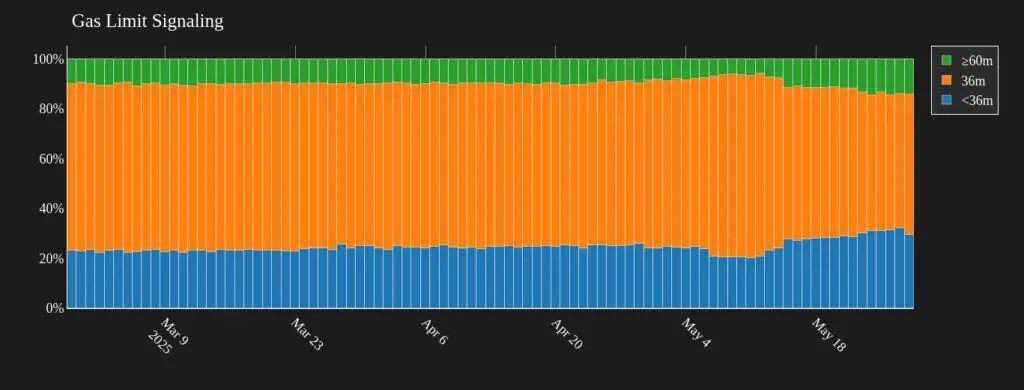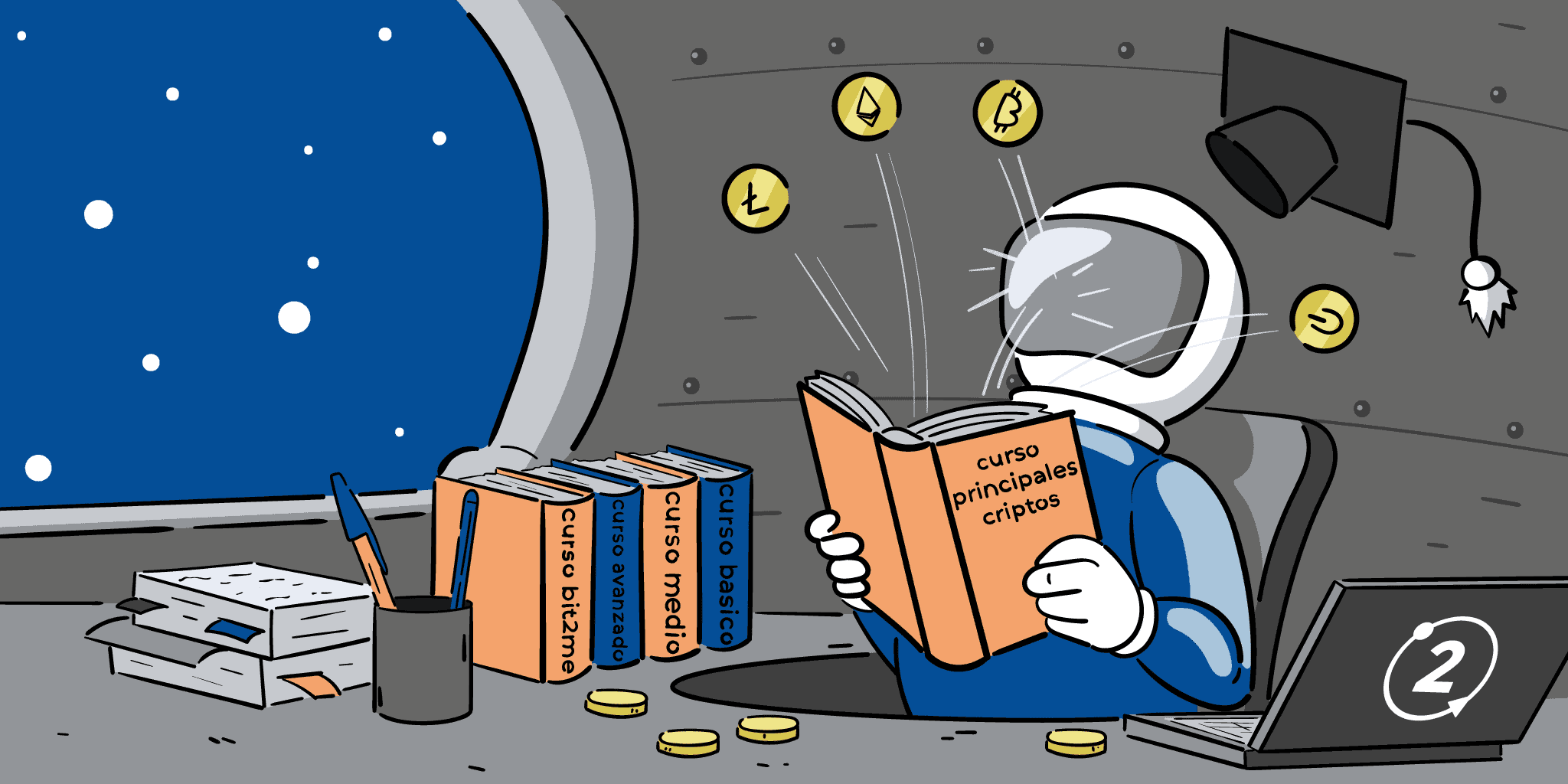
Ethereum is looking to raise its gas limit to 60 million, improving speed and commission rates with the support of thousands of validators.
The future of Ethereum could experience another major change that will directly impact the network's speed, efficiency, and capacity. The validator community, those responsible for securing and validating transactions within this blockchain ecosystem, is showing massive support for a proposal that, if approved, would allow for an increase in the gas limit on Ethereum blocks.
Currently, more than 150.000 validators—representing approximately 15% of the total number of validators operating on the blockchain—have endorsed this initiative, a clear sign of the community's commitment to continue improving the network's scalability and user experience. However, it should be noted that this proposal has not yet been officially approved, and is therefore still under discussion and analysis by developers and key network participants.
EXPLORE THE POTENTIAL OF ETHEREUM WITH BIT2MEWhat does increasing the gas limit mean and why is it so important?
To understand the relevance of this new proposal, it is important to explain what gas is in Ethereum. gas is unit that measures the amount of computational effort required to execute transactions or smart contracts on the blockchain.
Every transaction on Ethereum requires certain resources, and gas helps limit and pay for that usage. The gas limit essentially sets how much a series of transactions within a block can spend in total. Currently, this limit is set at 36 million, an amount that was increased from the initial figure of 30 million last February. The proposal currently under discussion seeks increase that threshold to 60 million, almost double what it is now.
This increase has a direct impact on the user experience. By being able to process more data in each block, network will be able to handle a greater volume of transactions, which will translate into faster transactions, less congestion, and potentially lower fees. Thus, network congestion, which has become one of the main problems during peak usage, will decrease thanks to this increase, especially benefiting decentralized applications (dApps) and users who want to transact without having to pay prohibitive fees during times of high demand.
Furthermore, since it doesn't require a hard fork, this gas limit change can be implemented easily and automatically, as long as more than 50% of validators signal their support.
LINK TO EARN AND STAKE WITH ETHEREUM NOWThe support of the community and influential figures
This massive endorsement from validators is not a mere formality; it reflects a clear trend within the Ethereum community to continue adapting the network to current and future needs. Key figures such as Ethereum co-founder Vitalik Buterin have publicly expressed support for the idea of adjusting the gas limit in response to technological advancements and growing network demand.
The community is aware that, in order to remain competitive against other blockchains, Ethereum needs to improve its performance and scalability without compromising security or decentralization, so some 153.700 validators support a new gas increase.

Source: Gaslimit
It's important to remember that the last gas limit increase was approved in early February, bringing it to 35 million. This decision was seen as a positive step toward expanding network capacity at a time when usage was rapidly increasing. Since then, validators have been discussing the possibility of a further increase, which would further optimize Ethereum's capabilities and offer an improved user experience in an increasingly competitive environment.
Reasons for supporting an Ethereum capacity increase
The move to increase the gas limit is not only a technical necessity, but also a strategy to make Ethereum more competitive against other blockchains that are gaining ground in terms of speed and efficiency. Some of the reasons behind this decision include the growing demand for use in various applications, from decentralized finance (DeFi) to NFTs, in addition to the constant emergence of new scalability solutions that seek to solve the congestion problems affecting many platforms.
Trade Ethereum safely and securelyAdditionally, by being able to process more data per block, Ethereum will strengthen its ability to support dApps with higher transaction volumes, potentially attracting more developers and users.
Compatibility and interoperability with different Layer 2 solutions are also aspects that become more viable with increased processing capacity, allowing transactions to be carried out more quickly and cost-effectively, without sacrificing network security.
Therefore, while an excessive increase in the gas limit could also create new challenges for the network, such as security and centralization, if a new increase is approved, the blockchain could once again take a step forward in scalability and performance.

Main Cryptocurrencies Course
Basic levelBit2Me Academy brings you a new course in which you will learn everything you need about the most important cryptocurrencies that exist today.
In short, the proposal The decision to increase the gas limit to 60 million is not just a technical response; it's a testament to the innovative and collaborative spirit that defines Ethereum. As more validators express their support, the possibility of implementing these changes in the near future becomes more tangible, paving the way for a faster, more efficient network that's ready to face the challenges of the digital world. This process undoubtedly reflects the Ethereum community's constant efforts to refine and adapt the network to the demands of a constantly evolving environment, consolidating its position as one of the pillars of blockchain innovation.
Investing in cryptoassets is not fully regulated, may not be suitable for retail investors due to high volatility and there is a risk of losing all invested amounts.



